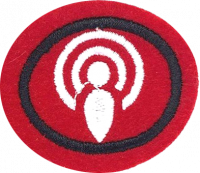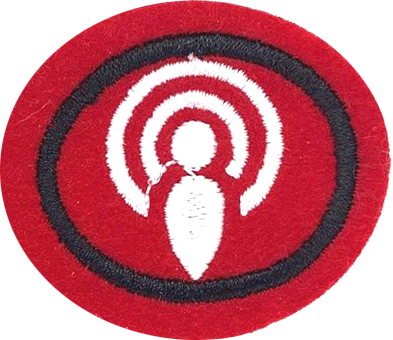Difference between revisions of "AY Honors/Podcasting/Answer Key/en"
(Updating to match new version of source page) |
(Updating to match new version of source page) |
||
| Line 237: | Line 237: | ||
[[Category:AY Honors/noindex{{GetLangSuffix}}|{{SUBPAGENAME}}]] | [[Category:AY Honors/noindex{{GetLangSuffix}}|{{SUBPAGENAME}}]] | ||
| − | |||
| − | |||
{{CloseHonorPage}} | {{CloseHonorPage}} | ||
Revision as of 18:02, 13 July 2022
Prerequisite
Pathfinders working on this honor must first earn the Internet honor.
For tips and instruction see Internet.
1
1a
1b
A podcast is an audio program, like talk radio, but you subscribe to it on your smartphone or computer, and listen to it whenever you like. It is a digital audio file made available on the internet for downloading to a computer or mobile device. It is typically available as a series, new installments of which can be received automatically through a subscription.
1c
Vodcasts are video-based podcasts. Now, both vodcasts and podcasts are available as podcasts -- there is no differentiation.
1d
Livestream means the program runs at a time and you watch or listen to it at that time. You cannot rewind nor view it when you wish, you must join the broadcast when it is running. Livestream is the opposite of On Demand (next requirement)
1e
On Demand means you can listen to or watch the prepared program when you wish. Podcasts are on demand. If you miss something you can rewind, play it again, share the presentation with other for them to experience later.
1f
1g
1h
1i
1j
1k
1l
1m
The metadata is hidden encrypted information that is placed in the file by the creator so that search engines and other aggregating software can list your podcasts in categories and aligned with interests others may have in your podcast. Titles, topics, key words, important guests, and other captivating content is listed in the metadata.
1n
Visual and audio files are the work and thus property of their producers/owners.
There are three types of licenses in the recording industry
Copyright - work cannot be used, adapted, copied, or published without the owners permission
Creative Commons - work may be used without permission but only under certain circumstances. Creators set the rules for the way the work is used.
Public Domain - work can be used, adapted, copied, and published completely without restrictions. No permission is required. Public domain is often work that has fallen out of copyright and not been renewed. Classic hymns, such as Amazing Grace are in the public domain. A good list of classic hymns in the public domain can be found at [link [1]]
Myths:
1. I can use any music if I'm not making money from it
2. It's okay if I play less than 10 seconds
3. As long as I provide attribution, the artist will understand
4. I can use any music under "fair use.”
5. "No copyright infringement intended."
2
2a
2b
2c
2d
3
3a
3b
Royalty free music is music available either from the public domain or from artists who have provided it to Creative Commons licensing. It is free for you to use without payment to anyone. Be aware that both the written work (if sheet music for example) and the performance must be either public domain or creative commons. For example, the hymn Amazing Grace is public domain, but if a modern music band performs the song, the performance may not be usable for podcasting.
Royalty free sources include - Incompetech, The Free Music Archive, 909 Music on Soundcloud, Musopen, Danosongs, CCMixter, Purple Planet Music, Soundbible.
The software you use to create your podcast will have a line for you to put music in the background, as introduction, etc. Be sure your music is royalty free!
3c
3d
3e
4
4a
4b
4c
4d
5
6
7
Extras
a
b
c



